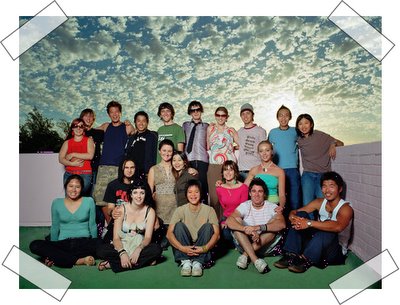Here's what I'm bringing with me to our discussion today:I love the church. I don’t mean to suggest that I love every church I’ve ever visited. Nor am I suggesting that I love every church person I’ve ever known. I mean to say that I love the body of Christ, the bride of Christ. I love who she has been at her highest and best moments in my life.
When I was lost – and I don’t mean when I hadn’t subscribed to the right doctrinal formulations or before I had been baptized – when I was lost, confused, disorientated and headed down a hundred different all paths, each just as empty as the one before – when I was lost the church of Jesus Christ in the person of a Baptist campus intern, a church of Christ campus minister and a couple handfuls of 18-22 year-olds-old drew me into an alternative way of living, a new reality and a regenerating of my life in the power and identity of Christ Jesus. Through their stories, their friendships, their time and interactions I discovered the way, the truth and life which has governed and held me for every year since then. And I am forever changed and grateful.
I love the church. I just don’t like being around her all the time. The language and image of church in our day is amazingly consumeristic, institutional and focused on meetings, gatherings, mental assent and self-improvement. I’m not against improving oneself, politeness and morality or really enjoyable gatherings and shows. But that’s not ‘the church.’ That’s programming, governance, organization, methodology – the means. But the means has become the end and the very point for far too many people. Take away the means – take away the Sunday morning show, the classes and programs and I’m afraid that many, if not most, folks who call themselves Christians wouldn’t know what it meant to be a Christ-ian anymore.
What I need are new images, new ways of imaging the church. The Biblical metaphors are wonderful and meaning-filled. But for the sake of sparking discussion, let’s imagine the church in two different metaphors – one very 21st century, one a bit more rustic and western.
Two images for thinking about the church:
1.
Imagine the church as a network, a web of interconnected, interactive relationships. In this network there are open, ‘friendly’, meaning-filled, functional, constructive interfaces between various entities (persons, families, neighborhoods, communities…) These entities, upon entering the network, have aligned themselves to a welcoming, accepting, cooperative rapport with others on the network, based on a common allegiance (to Christ) not necessarily on affinity, likeness or similarity.
a. Embedded in this is image is a theology of hospitality. Members of the body of Christ practice a commitment to accepting one another as they have been accepted by Christ.
b. God shows up within the very interactions themselves in this network. The Holy Spirit works through the interactions, stories, and experiences that are shared and encountered in dealings with each other. It is in these very interactions that transformation of character, conduct, intention, mission and life takes place. As Eugene Peterson writes, “There can be no maturity in the spiritual life, no obedience in following Jesus, no wholeness in the Christian life apart from an immersion and embrace of community. I am not myself by myself. Community, not the highly vaunted individualism of our culture, is the setting in which Christ is at play.” (Peterson, Christ Plays in Ten Thousand Places, p. 226.)
2.
Imagine the church as an outpost of Heaven. If Heaven is the reality where God’s will is fully known, explored, lived out, cherished and celebrated, then the church is an outpost of Heaven – pushing God’s will further, wider and deeper into the reality in which people live. This outpost has many functions...
- As an embassy, sending ambassadors into the surrounding community and world to invite and initiate others into the rule/reign of God. (Consider Eph. 6:12)
- As an alternative society resisting powers which would degrade the inherit worth of humanity, bolster structures of injustice or manipulate humans away from loyalty to God.
- As a center for discovery and expedition, searching for the movement and presence of God in creation, in places of suffering and struggle, in moments of spiritual conversation and in ordinary life. The outpost searches for where God is and what God is doing so that it may join God there.
- This outpost also offers security, refuge, hospitality, acceptance, healing, hope and mercy to everyone. The primary language of this outpost is love; love that would bring Senator John McCain, a good Reformed Pastor and a normal, ordinary Tulsa family to the same dinner table with a militantly liberal feminist, an alcoholic father, a prostitute whose in rehab, and a fanatic anti-government insurgent.
(Jesus’ practices of table fellowship dramatically flew in the face of the honor and shame culture of the day. The table became for Jesus (and eventually for the church) a primary way to live out the language of love as Jews and Gentiles, rich and poor, men and women came together to share in meals, to interact and to break bread.)- Additionally, this outpost is a place of commissioning, sending persons into the surrounding community and world to carry on the mission begun by Christ Jesus.


